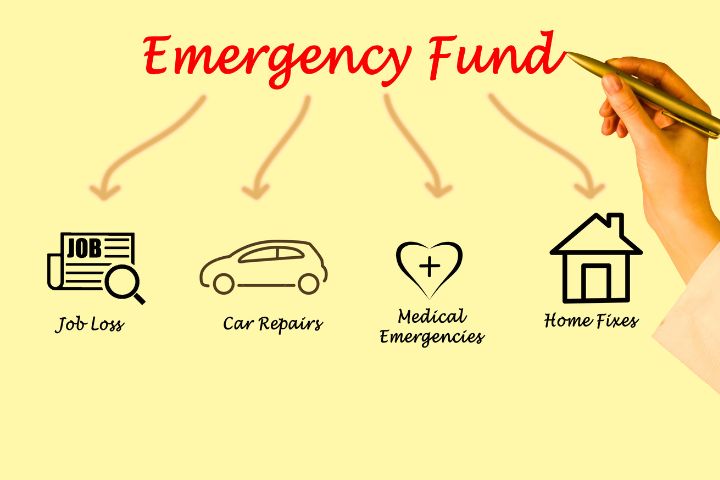

Ten tips to build an emergency fund on a tight budget
Creating an emergency fund can be a game-changer during difficult times. It might seem challenging to build this fund while on a tight budget, but it's definitely possible. With discipline, strategic planning, and a few creative tactics, you can build up your emergency savings. Here are our top 10 tips:
1. Be realistic
Start by figuring out the amount you need in your emergency fund. Many financial experts recommend saving three to six months' worth of living expenses. However, if you're on a tight budget, starting with a smaller, more achievable goal can still provide a crucial financial safety net and boost your confidence as you gradually save more over time. Taking small steps can lead to significant results, so it's absolutely fine to concentrate on one attainable goal at a time.
2. Keep on top of expenses
Understanding where your money goes each month is crucial to staying in control. Track all your expenses for at least a month to identify areas where you can cut back. Some great budgeting apps can help you do this, and Forbes Advisor has listed some that you might want to use.
3. Cut unnecessary spending
By identifying and eliminating non-essential expenses, you can redirect that money towards your emergency fund. Consider where you can cut back, such as buying in bulk to reduce costs, cancelling some streaming services or other subscriptions, or organising BYO coffee catch-ups with friends instead of going to a café.
4. Budget, budget, budget
At the risk of sounding repetitive, creating a budget will help ensure that you're using your hard-earned cash for the things that matter most. This means prioritising essential expenses like rent or mortgage, utilities, groceries, and transport. Don't forget to allocate a small, regular amount toward your emergency fund, even if it's just $50 or even $25 each week. The key is consistency.
5. Automate your savings
Be sure to schedule an automatic transfer from your everyday account to your emergency fund account every payday. Automating your savings will make it easier to stick to your plan because the money will be moved before you have a chance to spend it. Make sure to choose an account that pays interest and doesn't have any account-keeping fees. This way, your emergency fund will continue to grow.
6. Set up multiple accounts
If you struggle with overspending, consider setting up multiple accounts to cover specific expense categories. It's important not to go overboard, but having an account for your regular weekly expenses (like rent, groceries, and travel or petrol) and another for less frequent expenses (such as school fees, utilities, insurance, and car registration) will help to ensure that you're not spending money today that you're going to need next month. And the good news is - any leftover money can be added to your emergency fund.
7. Boost your income
One effective way to build up your emergency fund is to increase your income. This could involve taking on a side hustle, doing freelance work, selling unused items, or asking for overtime at your current job. You can learn more with these six practical tips for boosting your income.
8. Save those windfalls
We all love receiving some extra cash. Moving unexpected money, like tax refunds, bonuses, or gifts, into your emergency fund will help it grow much faster. These little windfalls can significantly boost your savings without impacting your monthly budget.
9. Seek out free stuff
Look for free or low-cost activities to replace more expensive leisure time options. Check what your local council has to offer, as you'll often find free events and activities aimed at all ages. Don't forget your public library, as most will offer free classes to suit a wide range of interests. You can also check online to see what's going on in your local community, and a family trip to the park, beach, or nature trail is a great way to spend some quality time together without breaking the budget.
10. Review and adjust
Be sure to regularly review your budget and savings progress. Adjust your spending and saving strategies as needed. It’s also important to celebrate your milestones, no matter how small, as they will keep you motivated. Consider joining a community or support group focused on financial wellness. Sharing your goals and challenges with others can provide encouragement and drive accountability.
A final word
Building an emergency fund on a tight budget requires dedication and strategic planning. You can achieve this by setting realistic goals, tracking your expenses, automating savings, cutting unnecessary costs, boosting your income, and regularly reviewing your progress. Remember, every small contribution counts and brings you one step closer to financial security. Stay committed to your plan, and over time, you’ll achieve your savings goals.
We understand that unexpected costs can occur at any time, often when you can least afford them. If you do find yourself in a financial bind, we’re here to help. Take a look at our cash loans up to $5,000 to see how quick and easy it is to access extra funds. Once a loan is approved, the money is usually in your bank account within a few hours - so you can stop stressing about where the money will come from and get on with living!